Chapitres
Notice
How political were Airbus sales in the 1970s and 1980s ? / Mark Spoerer, Tobias Jopp
- document 1 document 2 document 3
- niveau 1 niveau 2 niveau 3
Descriptif
How political were Airbus sales in the 1970s and 1980s ? / Mark Spoerer, Tobias A. Jopp, in colloque "Naissance et affirmation du groupe Airbus (années 1960-années 1980)" organisé par le laboratoire FRAMESPA (France, Amériques, Espagne- Sociétés, Pouvoirs, Acteurs) sous la responsabilité scientifique de Jean-Marc Olivier, Université Toulouse Jean Jaurès, 23-25 septembre 2020.
Session 5 : Mondialisations.
* Communication enregistrée en visioconférence.
When, in the second half of the 1960s, governments and aircraft manufacturers in Western Europe discussed a possible joint project called “Airbus”, the markets for civil jet aircraft were dominated by two US firms, Boeing and McDonnell Douglas. After a disappointing start, Airbus Industrie, founded in 1970, had become a serious competitor only a decade later. Since the early 2000s, Airbus and Boeing have been competing head-to-head for market leadership for jet aircraft with more than 100 seats. Boeing has persistently complained about Airbus receiving loans on favourable terms and other subsidies from European governments, and that the latter would use political pressure to make operators buy Airbus aircraft. Based on a record of all wide-body jets delivered between 1969 and 1989 and a dataset built thereupon on all airlines having acquired a brand-new wide-body, we subject the latter reproach to an empirical test by asking for the political determinants of Airbus and Boeing sales. We find suggestive evidence for airlines’ ownership status and their home countries’ former colonial ties to as well as trade relations with and development aid flows from the Airbus consortium member countries and the US to have mattered.
Intervention / Responsable scientifique
Thème
Documentation
Références documentaires
Acemoglu, D., Johnson, S., Robinson, J. A. (2001): The Colonial Origins of Comparative Development: An Empirical Investigation, in: The American Economic Review 91: 1369-1401.[En ligne : http://web.mit.edu/daron/www/colonial8comp.pdf].
Alesina, A., Dollar, D. (2000): Who gives foreign aid to whom and why?, in: Journal of Economic Growth 5: 33-63. [En ligne : http://pirate.shu.edu/~gokcekom/Dollar_and_Alesina.pdf].
Andres, C. M. (1996): Die bundesdeutsche Luft- und Raumfahrtindustrie 1945-1970: Ein Industriebereich im Spannungsfeld von Politik, Wirtschaft und Militär, Frankfurt et al.
Argiropoulos, K. O. (1982): The airline fuel crisis in the 1970s, in: G. W. James (ed.), Airline economics, Lexington, pp. 99-112.
Asongazoh, A. J. (2010): Post-colonial colonialism: An analysis of international factors and actors marring African socio-economic and political development, in: The Journal of Pan African Studies 3: 62-84.
Austin, G. (2010): African economic development and colonial legacies, in: International Development Policy/Revue Internationale de Politique de Développement 1: 11-32.
Baldwin, R., Krugman, P. (1988): Industrial policy and international competition in wide-body jet aircraft, in: R. E. Baldwin (ed.), Trade policy Issues and empirical analysis, Chicago, pp. 45-78. [En ligne : https://www.nber.org/system/files/chapters/c5847/c5847.pdf].
Barbieri, K., Keshk, O. M. G., Pollins, B. (2009): Trading data: Evaluating our Assumptions and Coding Rules, in: Conflict Management and Peace Science 26: 471-491. [En ligne : https://www.researchgate.net/publication/49518195_Trading_Data_Evaluating_Our_Assumptions_and_Coding_Rules].
Berthélemy, J.-C. (2006): Bilateral donors‘ interest vs. recipients‘ development motives in aid allocation: do all donors behave the same?, in: Review of Development Economics 10: 179-194. [En ligne : https://halshs.archives-ouvertes.fr/halshs-00193273/document].
Béteille, R. (1995): Introduction: Airbus; or, the reconstruction of European civil aeronautics, in: W. H. Leary (ed.), From Airship to Airbus. The history of civil and commercial aviation, Washington, pp. 1-14.
Boddewyn, J. J. (1993): Political resources and markets in international business: Beyond Porter’s generic strategies, in: Research in Global Strategic Management 4: 83-99.
Bowen, J. (2010): The economic geography of air transportation: Space, time, and the freedom of the sky, London, New York.
Bugos, G. E. (1996): The Airbus matrix: The reorganization of the postwar European aircraft industry, in: F. H. Heller, J. R. Gillingham (eds.), The United States and the integration of Europe: Legacies of the postwar era, New York, pp. 379-400.
Carbaugh, R. J., Olienyk, J. (2004): Boeing-Airbus subsidy dispute: A sequel, in: Global Economy Journal 4: 1-9. [En ligne : https://www.researchgate.net/publication/4743687_Boeing-Airbus_Subsidy_Dispute_A_Sequel].
Crombez, C., Van Kerckhoven, S., Van Gestel, W. (2011): Political business strategies and the political economy of transatlantic trade: Airbus and Boeing, in: Review of Business and Economics 56: 224-243.
DeSantis, J. (2013): Engines Turn or Passengers Swim: A Case Study of How ETOPS Improved Both Safety and Economics in Aviation, in: Journal of Air Law and Commerce 78: 3-68.
Dienel, H.-L., Lyth, P. (eds.) (1998): Flying the flag: European commercial air transport since 1945, Basingstoke, London, New York.
Grier, R. M. (1999): Colonial legacies and economic growth, in: Public Choice 98: 317-335.
Hayward, K. (1975): Politics and European aerospace collaboration: The A300 Airbus, in: Journal of Common Market Studies 14: 354-367.
Hickie, D. (1991): Airbus Industrie: A case study in European high technology cooperation, in: U. Haupert (ed.), State policies and techno-industrial innovation, London, New York, pp. 187-212.
Imbeau, L. M. (1989): Donor aid - the determinants of development allocations to Third World countries: A comparative analysis, New York.
Irwin, D. A., Pavcnik, N. (2004): Airbus versus Boeing revisited: International competition in the aircraft market, in: Journal of International Economics 64: 223-245. [En ligne : http://www.dartmouth.edu/~dirwin/docs/airbus3.pdf].
Kechidi, M. (2013): From ‘aircraft manufacturer’ to ‘architect-integrator’: Airbus’s industrial organization model, in: International Journal of Technology and Globalisation 7: 8-22.[En ligne : https://www.inderscienceonline.com/doi/pdf/10.1504/IJTG.2013.052028].
Kirchner, U. (1998): Geschichte des bundesdeutschen Verkehrsflugzeugbaus: Der lange Weg zum Airbus, Frankfurt/New York.
Lange, M. (2004): British colonial legacies and political development, in: World Development 32: 905-22.
Lawrence, P. K., Thornton, D. W. (2005): Deep stall: the turbulent story of Boeing commercial airplanes, Aldershot/Burlington.
Lee, A., Schultz, K. A. (2012): Comparing British and French colonial legacies: A discontinuity analysis of Cameroon, in: Quarterly Journal of Political Science 7: 1-46.
Lumsdaine, D. H. (1993): Moral vision in international politics: the foreign aid regime, 1949-1989, Princeton/N.J.
Maennig, W., Wittig, S. (2010): WTO dispute settlement proceedings: European support for Airbus in the spotlight, in: Intereconomics 45: 180-187.
Majumdar, B. A. (1987): Upstart or flying start? The rise of Airbus Industrie, in: The World Economy 10: 497-518.
Maseland, R. (2018): Is colonialism history? The declining impact of colonial legacies on African institutional and economic development, in: Journal of Institutional Economics 14: 259-287.
McGuire, S. (1997): Airbus Industrie: Conflict and cooperation in US-EC trade relations, Basingstoke/London/New York.
McIntyre, I. (1992): Dogfight: The transatlantic battle over Airbus, Westport, London.
Newhouse, J. (1983): The sporty game, New York.
Mitchener, K., Weidenmier, M. (2005): Empire, public goods, and the Roosevelt Corollary, in: The Journal of Economic History 65: 658-692.
Olienyk, J., Carbaugh, R. J. (2011): Boeing and Airbus: Duopoly in jeopardy?, in: Global Economy Journal 11: 1-9.
Pavcnik, N. (2002): Trade disputes in the commercial aircraft industry, in: The World Economy 25: 733-751.
Raabe, T. (2020): Hochfliegende Ambitionen. Die Bundesregierungen und das Airbus-Projekt (1969-1981), Frankfurt.
Sandholtz, W., Love, W. (2001): Dogfight over Asia: Airbus vs. Boeing, in: Business and Politics 3: 135-156.
Sarathy, R. (1993): Beyond shelter: Global competition and Airbus’ strategic evolution, in: A. M. Rugman, A. Verbeke (eds.), Research in global strategic management. Vol. 4: Global competition – Beyond the three generics, Greenwich/London, pp. 125-151.
Schraeder, P. J., Taylor, B./Hook, S. W. (1998): Clarifying the Foreign Aid Puzzle: A comparison of American, Japanese, French, and Swedish Aid flows, in: World Politics 50: 294-323.
Thornton, D. W. (1995): Airbus Industrie: The politics of an international industrial collaboration, New York.
The Economist, June 12, 2003 and January 31, 2020.
Dans la même collection
-
Le projet Airbus parachève le choix de Toulouse comme capitale française de l’aéronautique civile /…
OlivierJean-MarcLe projet Airbus parachève le choix de Toulouse comme capitale française de l’aéronautique civile / Jean-Marc Olivier, in "Naissance et affirmation du groupe Airbus (années 1960-années 1980)",
-
Aux sources allemandes d’Airbus / Michel Bénichou
BénichouMichelAux sources allemandes d’Airbus / Michel Bénichou, in colloque "Naissance et affirmation du groupe Airbus (années 1960-années 1980)" organisé par le laboratoire FRAMESPA (France, Amériques, Espagne-
-
Airbus, un envol pour l’Europe ? / Bertrand Vayssière
VayssièreBertrandAirbus, un envol pour l’Europe ? / Bertrand Vayssière, in "Naissance et affirmation du groupe Airbus (années 1960-années 1980)", colloque organisé par le laboratoire FRAMESPA (France, Amériques,
-
Airbus, modèle ou exception pour les ambitions industrielles européennes, 1970-1984 ? / Laurent …
WarlouzetLaurentAirbus, modèle ou exception pour les ambitions industrielles européennes, 1970-1984 ? / Laurent Warlouzet, in "Naissance et affirmation du groupe Airbus (années 1960-années 1980)", colloque
-
L’État, acteur et arbitre de la stratégie industrielle aux origines d’Airbus (1967-1972) / Maurice …
ZytnickiMauriceL’État, acteur et arbitre de la stratégie industrielle aux origines d’Airbus (1967-1972) / Maurice Zytnicki, in colloque "Naissance et affirmation du groupe Airbus (années 1960-années 1980)" organisé
-
Born the shadow of Concorde: Britain’s Role in the Creation of Airbus / Stephen Rookes
RookesStephenBorn the shadow of Concorde: Britain’s Role in the Creation of Airbus / Stephen Rookes, in colloque "Naissance et affirmation du groupe Airbus (années 1960-années 1980)" organisé par le laboratoire
-
Le GIE, une structure juridique originale / Emmanuel Cordelier
CordelierEmmanuelLe GIE, une structure juridique originale / Emmanuel Cordelier, in "Naissance et affirmation du groupe Airbus (années 1960-années 1980)", colloque organisé par le laboratoire FRAMESPA (France,
-
Airbus : groupe aéronautique dans un monde bipolaire / Nadezhda Sazanovich
SazanovichNadezhdaAirbus : groupe aéronautique dans un monde bipolaire / Nadezhda Sazanovich, in "Naissance et affirmation du groupe Airbus (années 1960-années 1980)", colloque organisé par le laboratoire FRAMESPA
-
« No Sir, It’s an American Aircraft » : Selling the A300 to the US Public in the 1970s / Guillaume …
De SyonGuillaume« No Sir, It’s an American Aircraft » : Selling the A300 to the US Publicin the 1970s / Guillaume de Syon, in "Naissance et affirmation du groupe Airbus (années 1960-années 1980)", colloque organisé
-
Aux origines de la réussite d’Airbus : le colbertisme aéronautique / Marc-Daniel Seiffert
SeiffertMarc-DanielAux origines de la réussite d’Airbus : le colbertisme aéronautique / Marc-Daniel Seiffert, in "Naissance et affirmation du groupe Airbus (années 1960-années 1980)", colloque organisé par le
-
De Dewoitine à Airbus : vers la reconnaissance du patrimoine historique de l’aéronautique / Fabienn…
PérisFabienneDe Dewoitine à Airbus : vers la reconnaissance du patrimoine historique de l’aéronautique / Fabienne Péris, in "Naissance et affirmation du groupe Airbus (années 1960-années 1980)", colloque organisé
-
Les origines toulousaines d’Airbus et son patrimoine aéronautique / Jean-Pierre Salsenach
SALSENACHJean PierreLes origines toulousaines d’Airbus et son patrimoine aéronautique / Jean-Pierre Salsenach, in "Naissance et affirmation du groupe Airbus (années 1960-années 1980)", colloque organisé par le
Sur le même thème
-
Surgissement du bio comme alternative à la dérèglementation
González CabañasAlma AmaliaJimenezJeanRamirezJavierTuletJean-ChristianDelpechFranckCe grain nous explique les conditions qui ont permis la montée en puissance de la caféiculture biologique mexicaine.
-
La dynamique caféière du sud-est du Mexique dans son contexte national
JimenezJeanTuletJean-ChristianAguilaJacquesMansatArnaudCe grain aborde la question de l’évolution de la production mondiale en général et celle du Mexique en particulier, surtout dans les États du sud-est, là où la production caféière est la plus
-
Re-imagining Malaysia. Nationalism, ethnocracy and the postliberal politics of halal
HardakerGlennLeverJohnSéance : L’élargissement du halal " Vous avez dit halal ? " Normativités islamiques, mondialisation et sécularisation Colloque international, 7-8 novembre 2013, IISMM-EHESS, Salle Claude Lévi
-
Le projet Airbus parachève le choix de Toulouse comme capitale française de l’aéronautique civile /…
OlivierJean-MarcLe projet Airbus parachève le choix de Toulouse comme capitale française de l’aéronautique civile / Jean-Marc Olivier, in "Naissance et affirmation du groupe Airbus (années 1960-années 1980)",
-
L’aéronautique, une industrie de haute technologie [Études et documents 4] / Jean-Marc Olivier
OlivierJean-MarcLa période qui court de la sortie de la grande crise de la fin du Moyen Age et qui se termine au début de la Révolution française marque la première phase de croissance significative de l’industrie
-
Aux sources allemandes d’Airbus / Michel Bénichou
BénichouMichelAux sources allemandes d’Airbus / Michel Bénichou, in colloque "Naissance et affirmation du groupe Airbus (années 1960-années 1980)" organisé par le laboratoire FRAMESPA (France, Amériques, Espagne-
-
Airbus, un envol pour l’Europe ? / Bertrand Vayssière
VayssièreBertrandAirbus, un envol pour l’Europe ? / Bertrand Vayssière, in "Naissance et affirmation du groupe Airbus (années 1960-années 1980)", colloque organisé par le laboratoire FRAMESPA (France, Amériques,
-
Airbus, modèle ou exception pour les ambitions industrielles européennes, 1970-1984 ? / Laurent …
WarlouzetLaurentAirbus, modèle ou exception pour les ambitions industrielles européennes, 1970-1984 ? / Laurent Warlouzet, in "Naissance et affirmation du groupe Airbus (années 1960-années 1980)", colloque
-
Born the shadow of Concorde: Britain’s Role in the Creation of Airbus / Stephen Rookes
RookesStephenBorn the shadow of Concorde: Britain’s Role in the Creation of Airbus / Stephen Rookes, in colloque "Naissance et affirmation du groupe Airbus (années 1960-années 1980)" organisé par le laboratoire
-
Le GIE, une structure juridique originale / Emmanuel Cordelier
CordelierEmmanuelLe GIE, une structure juridique originale / Emmanuel Cordelier, in "Naissance et affirmation du groupe Airbus (années 1960-années 1980)", colloque organisé par le laboratoire FRAMESPA (France,
-
Airbus : groupe aéronautique dans un monde bipolaire / Nadezhda Sazanovich
SazanovichNadezhdaAirbus : groupe aéronautique dans un monde bipolaire / Nadezhda Sazanovich, in "Naissance et affirmation du groupe Airbus (années 1960-années 1980)", colloque organisé par le laboratoire FRAMESPA
-
« No Sir, It’s an American Aircraft » : Selling the A300 to the US Public in the 1970s / Guillaume …
De SyonGuillaume« No Sir, It’s an American Aircraft » : Selling the A300 to the US Publicin the 1970s / Guillaume de Syon, in "Naissance et affirmation du groupe Airbus (années 1960-années 1980)", colloque organisé

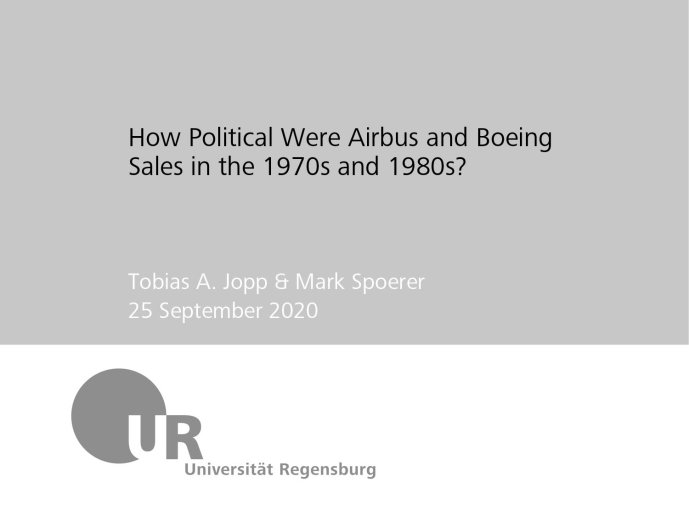
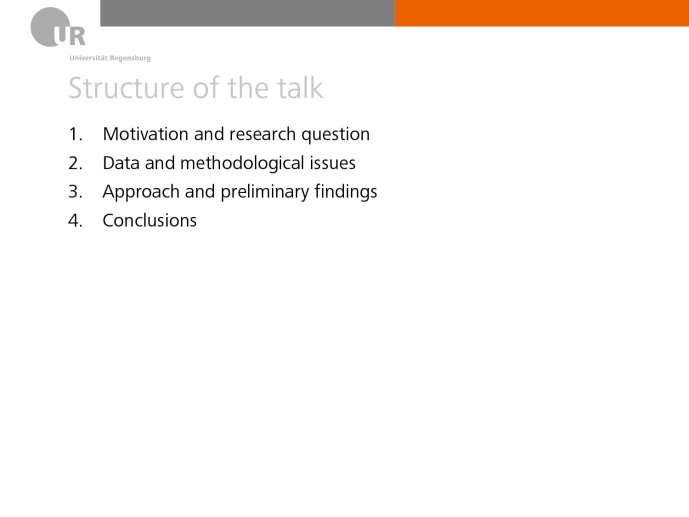
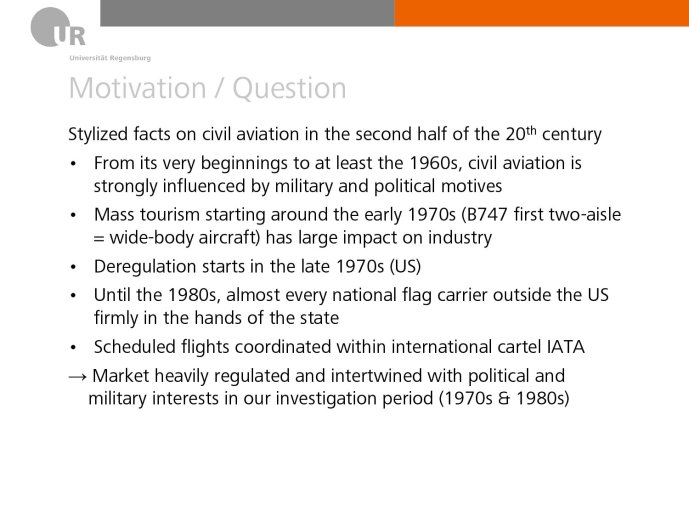
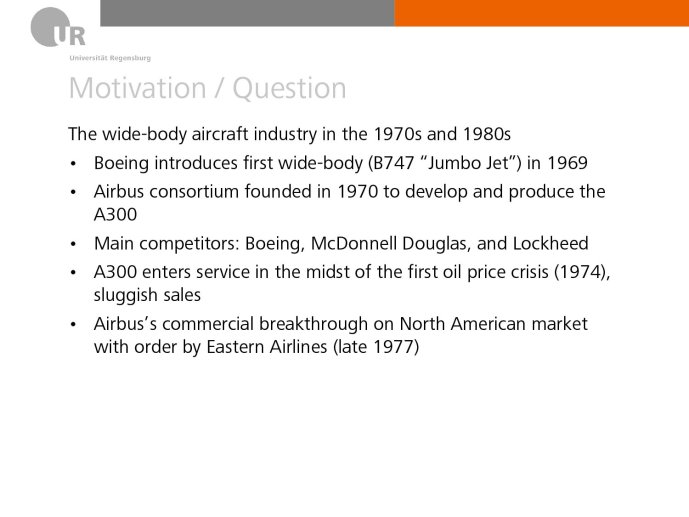
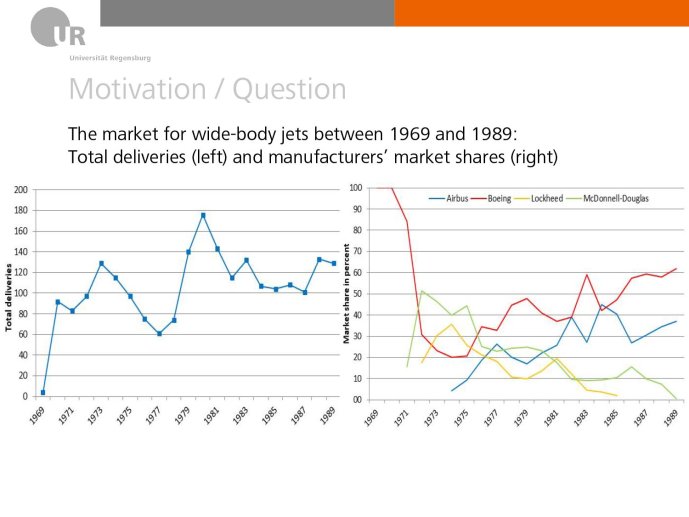
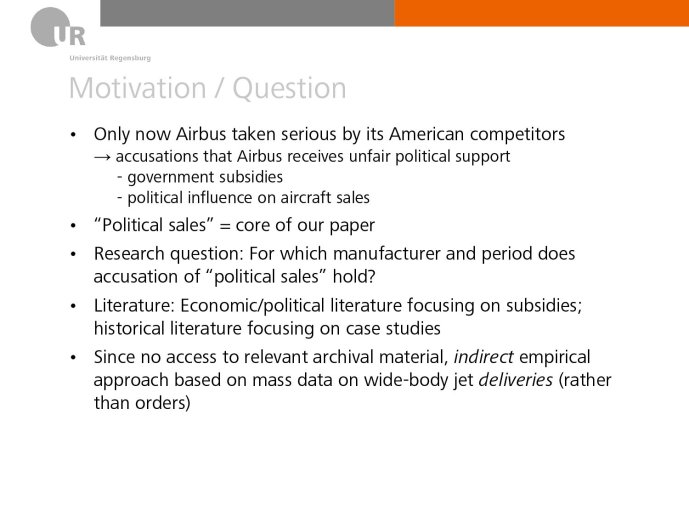
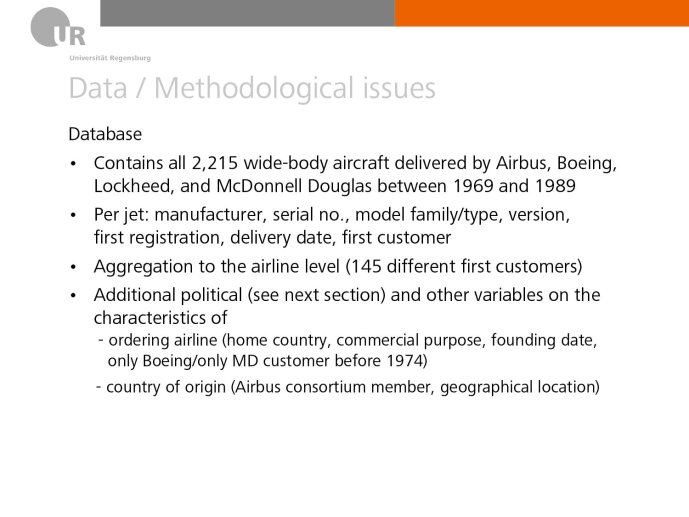
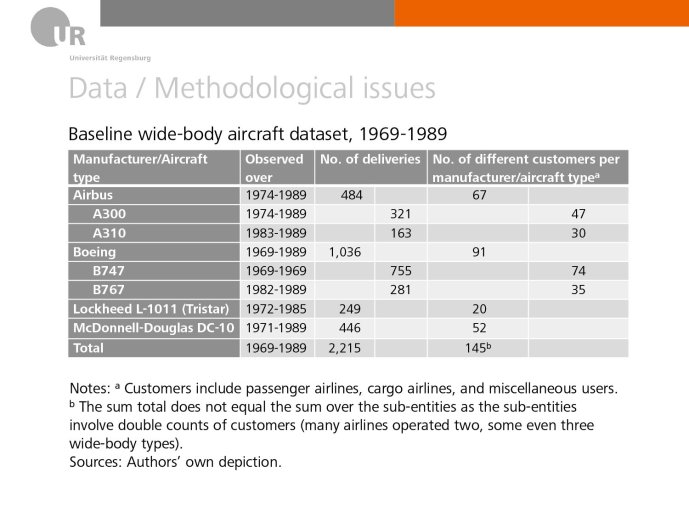
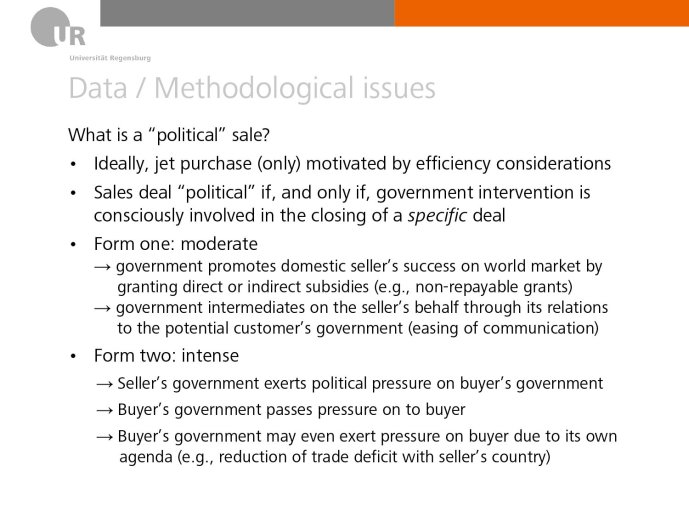
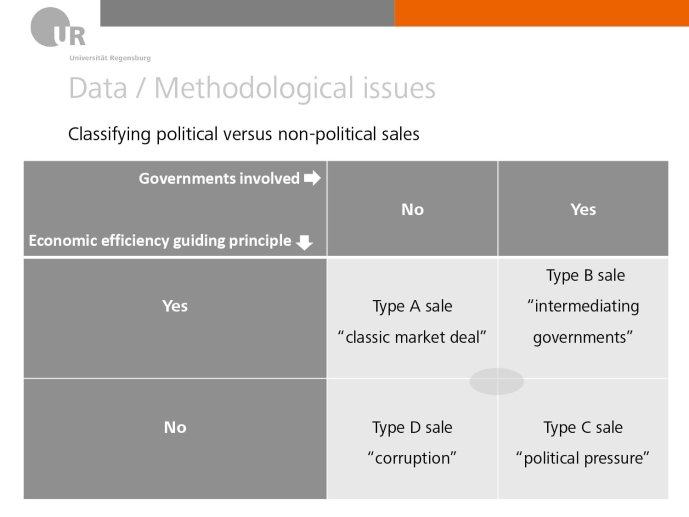
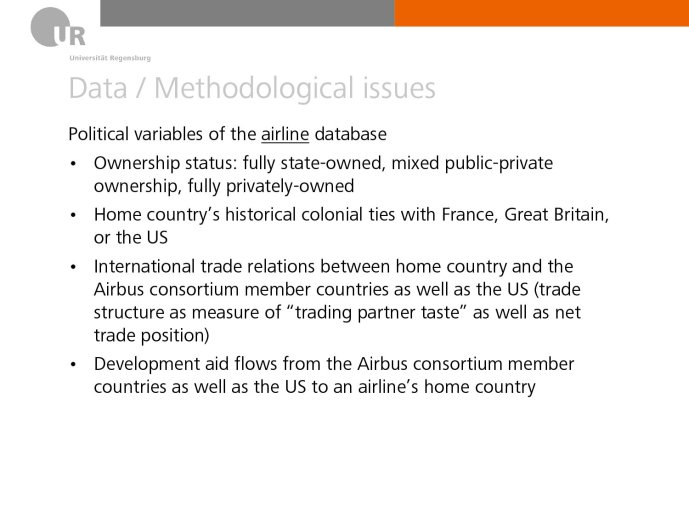
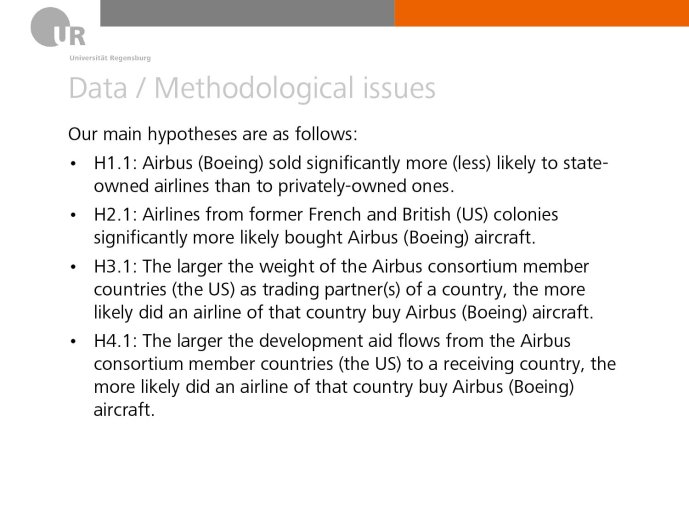
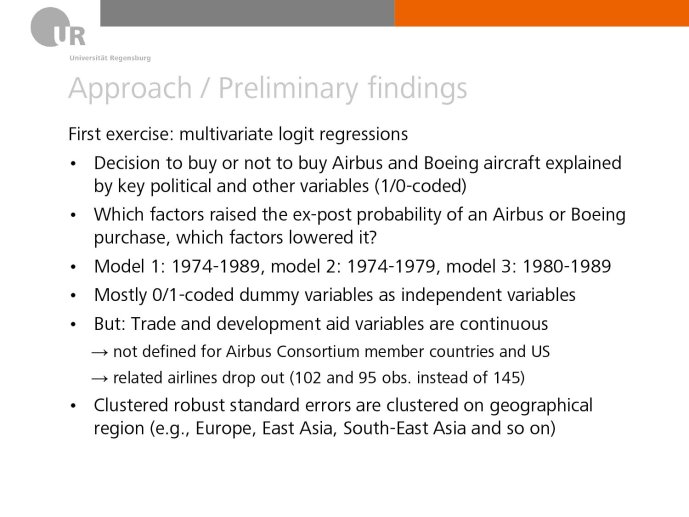
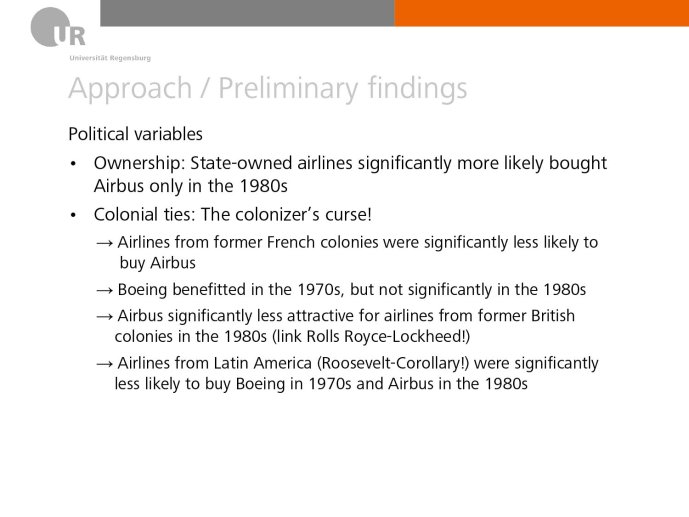
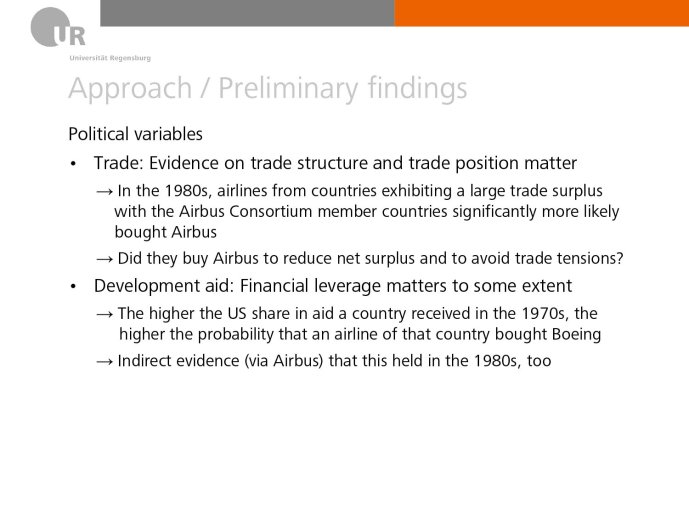
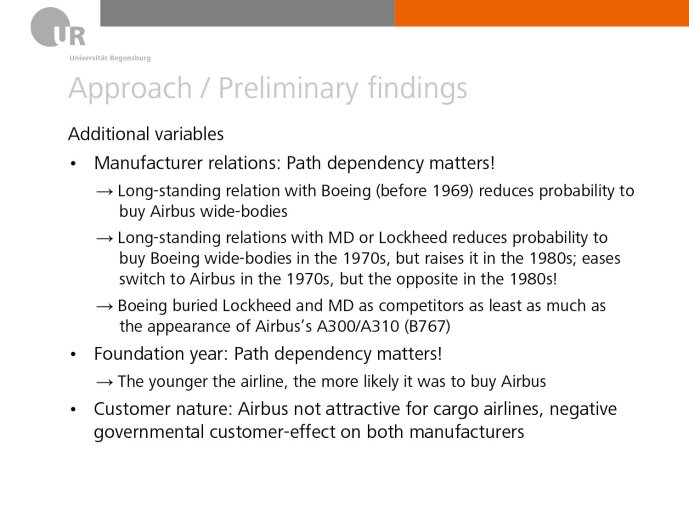
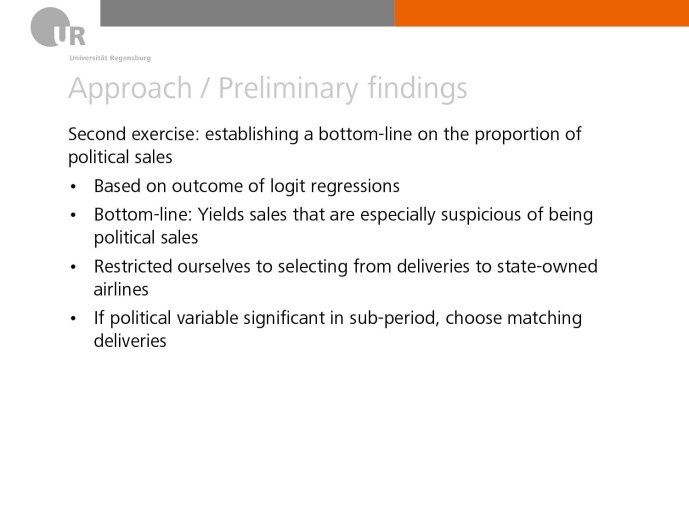
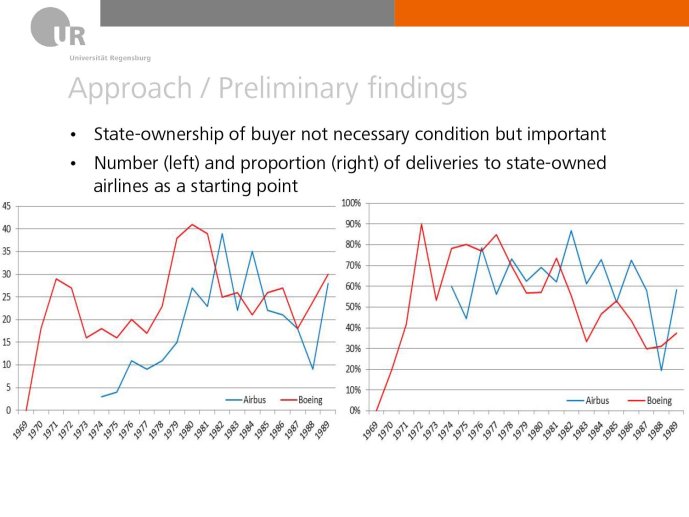
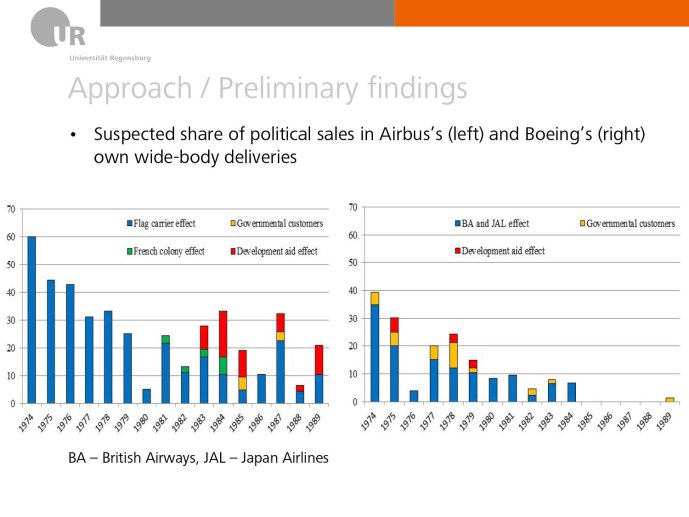
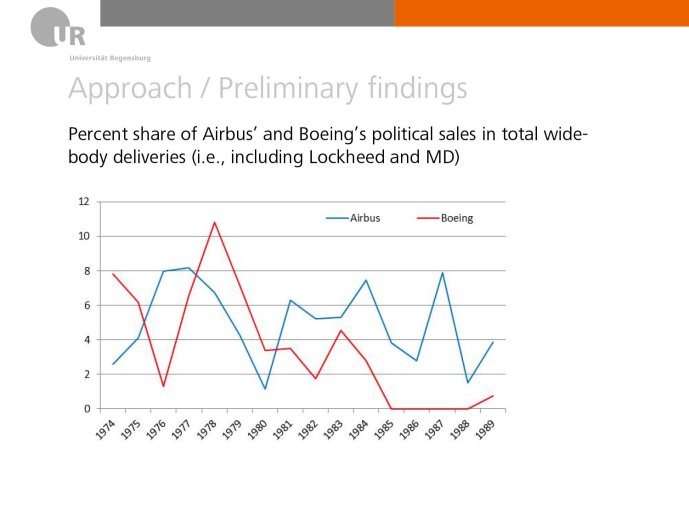
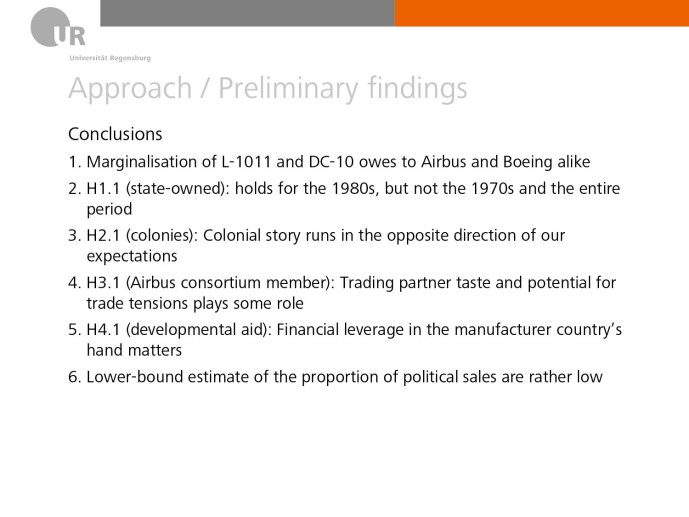

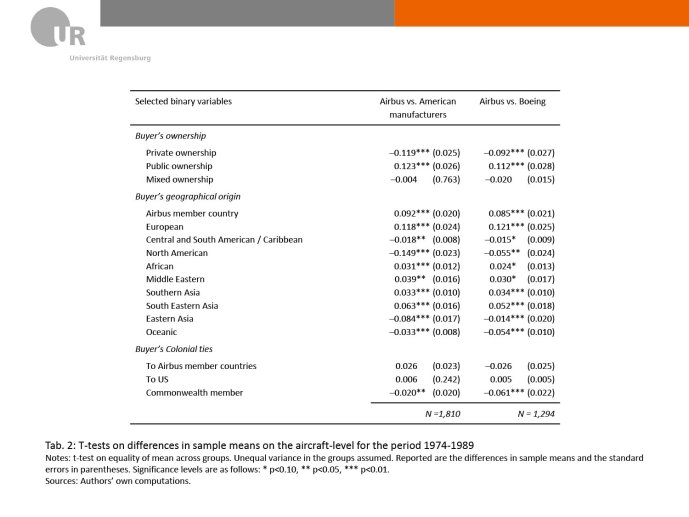
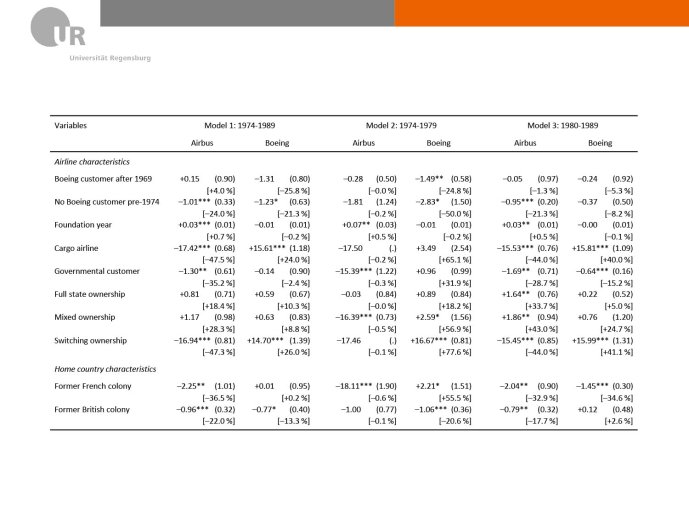
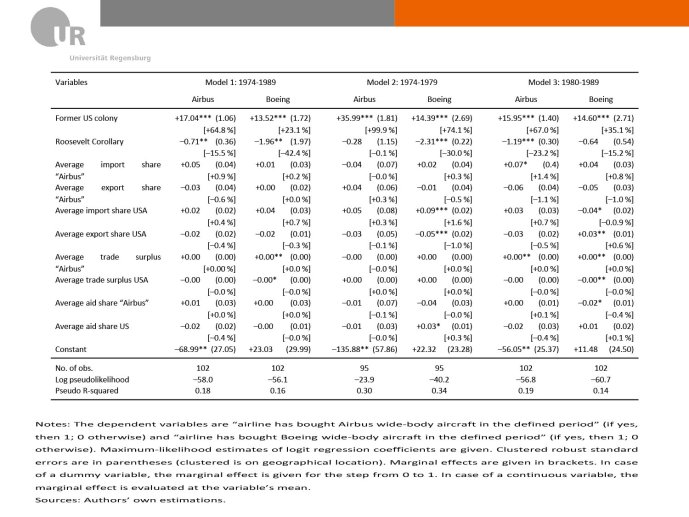
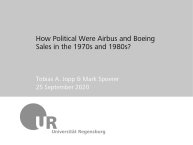

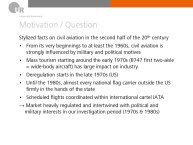
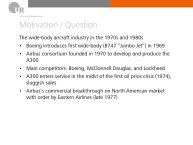
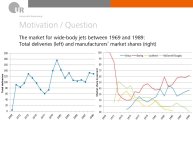
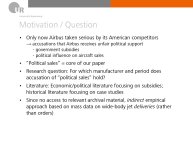
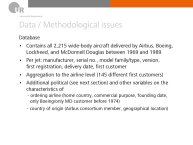
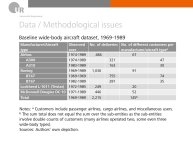
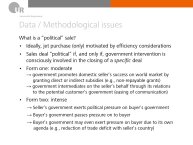
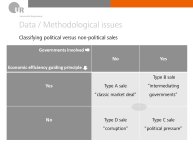
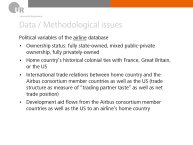
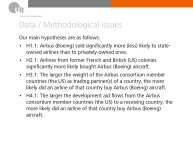
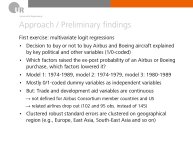
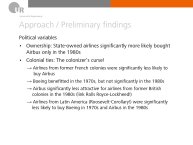
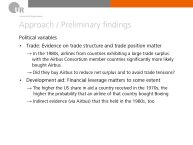
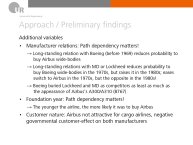
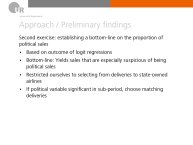
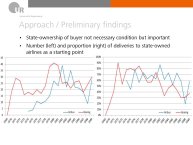
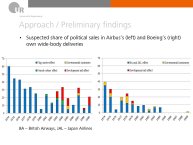
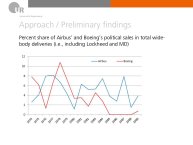
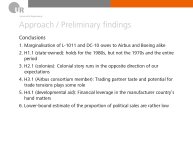

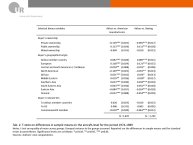
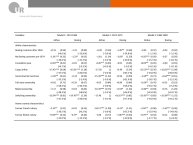
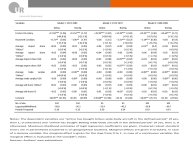


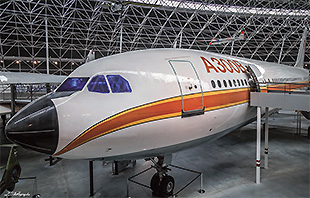












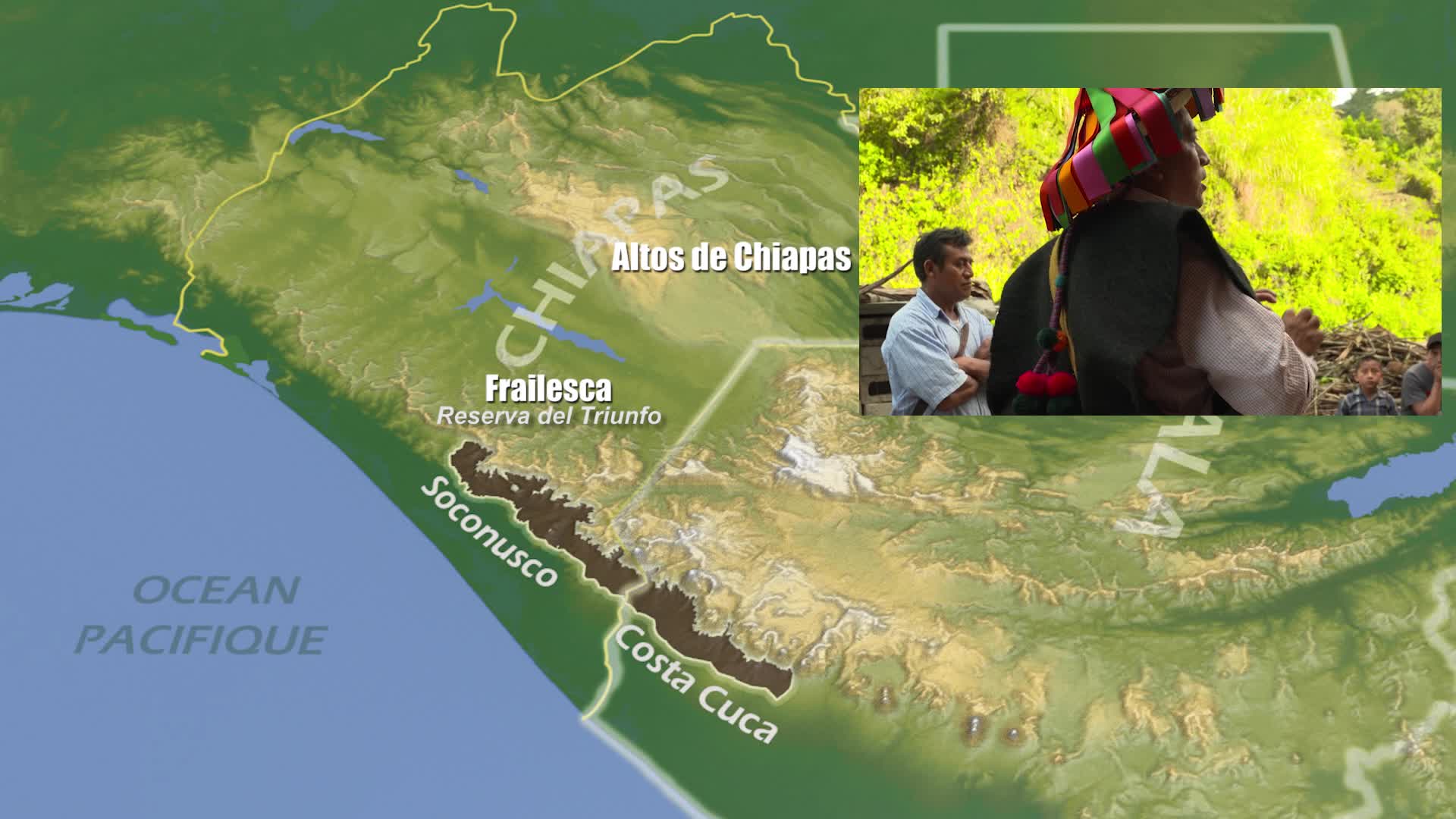

![L’aéronautique, une industrie de haute technologie [Études et documents 4] / Jean-Marc Olivier](https://vod.canal-u.tv/videos/media/images/utm/l.aeronautique.une.industrie.de.haute.technologie.lecon.4.jean.marc.olivier_59145/vignette.industrie.france.xviie.xxie.jpg)